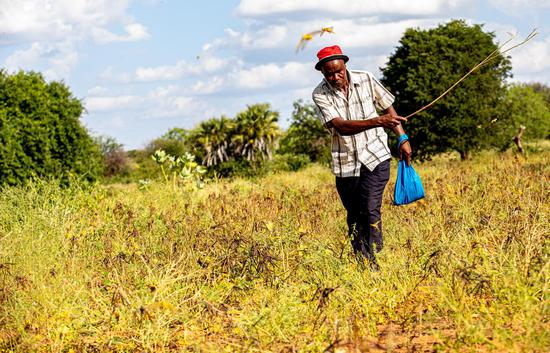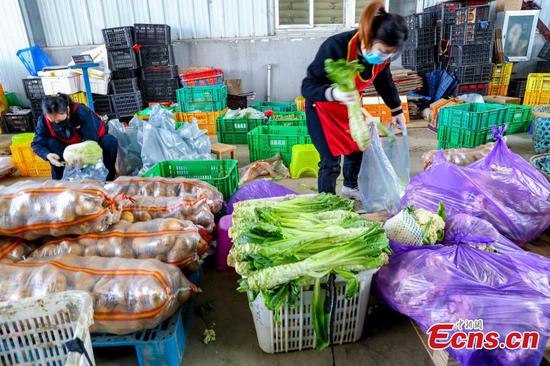
A farmer attempts to scare away desert locusts in Mwingi Town in Kitui County, Kenya, Feb. 20, 2020. (Xinhua/Zhang Yu)
AGGRAVATING FOOD INSECURITY
FAO officials said the locust outbreak has worsened the food insecurity in Africa, citing some 239 million people in sub-Saharan Africa suffering from hunger and malnutrition, and over 20 million having already been in food crisis in Horn of Africa countries.
UN Undersecretary-General for Humanitarian Affairs and Emergency Relief Coordinator, Mark Lowcock, said the current situation "is really, really challenging."
"There are currently over 30 million people in the affected countries, who are severely food insecure now. Ten million of those people are in the places affected by the locusts. Unless we get a grip of this in the next two or three or four weeks, we would have a serious problem," he stressed.
To avoid a famine, University of Nairobi professor Evaristus Irandu said the government may have to use the scarce foreign currency to import food products, adding that poverty will increase in the country.
"All our investment is going down the drain. The sorghum and millet crops were about to mature and we would have harvested next month," said Nathan Njiru, a farmer in Tharaka Nithi, whose livelihood largely depends on selling sorghum to Nairobi's beer brewers.
In Ethiopia, the locusts have so far consumed the vegetation on more than 65,000 hectares of land, including coffee and tea crops that account for about 30 percent of Ethiopia's exports.
A Moody's Investors Service report issued in early February showed that agriculture contributes about one-third of the gross domestic product in East Africa and more than 65 percent of jobs in all regional countries except for Kenya.




















































